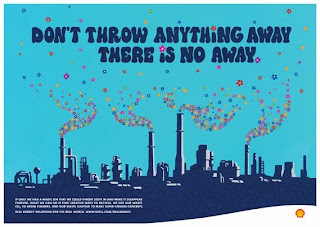This week I've been thinking a lot about the holiday season, gift giving and how those thoughts impact the environment.
 |
| Aitana Leret Garcia » DP2.- Cradle to cradle: Waste = Food : taken from - http://www.eoi.es/blogs/aitanaleret/2011/12/16/dp2-cradle-to-cradle-waste-food/http://creativecommons.org/licenses/by-nc-sa/3.0/es/ |
 |
Anyway, with my focus on permaculture the last couple of weeks as an individual and my focus on design as a teacher this cradle to cradle philosophy has really got me wondering about how we can teach students more about the ideas behind sustainable design.
 |
| Taken from Amazon.com |
How can we bring the cradle to cradle philosophy to class?
I think a lot about my implicit and explicit teaching. When I work with students how can I reinforce the idea of sustainable design explicitly and through my implicit actions? This is my focus for this week: being really aware of how I promote sustainable design. Any help is more than welcome.
